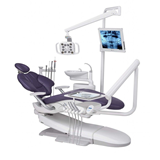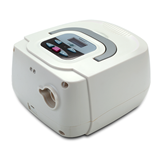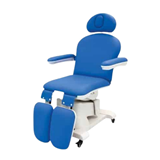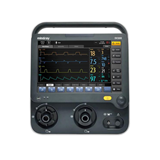A team at the Institute of Cancer Research is behind the breakthrough, which has found that nuclear magnetic resonance spectroscopy (MRS) can be used to monitor the effectiveness of a new generation of drugs being tested in clinical trials.
The findings were published in the scientific journal PLOS ONE.
The research, by a team from the ICR and The Royal Marsden NHS Foundation Trust, focused on a specific signalling pathway in the brain called the phosphoinositide 3-kinase (or PI3K) pathway, which is known to play an important role in glioblastoma development and drug resistance. The effectiveness of temozolomide, the chemotherapy drug used as part of the standard treatment of this tumour, is impeded by P13K.
The researchers looked at paediatric glioblastoma cells in the lab. They applied two P13K inhibiting agents and by using the MRS imaging technique, they discovered that these agents reduced the levels of two key "metabolites", which are the biomarkers that result from cell activity, controlled by the PI3K pathway.
Reduction in metabolites
This reduction in metabolites could provide a clinical imaging tool in order to measure whether these new agents are working to block the PI3K pathway. In short, the metabolic changes shown by MRS scanning have potential as non-invasive biomarkers of drug efficacy.
The research means that in future, MRS could be used to assess what effect therapeutic agents intended to block the pathway are having, without having to surgically remove tumour samples from patients or carry out conventional scans, which involve radiation.
Thus young people with brain cancer could avoid having to have repeated surgery to measure drug efficacy during clinical trials. It is far less invasive and would potentially speed up the trial process, thus accelerating new treatments to patients.
Adult clinical trials
Adult clinical trials in glioblastoma are already underway using agents to block the P13K pathway and similar trials for children could be on the horizon in future.
"Based on this promising work in cells, we hope to develop a straightforward, radiation-free magnetic resonance spectroscopy (MRS) scan that will help us to assess the impact the treatment is having and potentially accelerate progress in future trials towards improving survival rates," Professor Martin Leach, who led the research, said.
"When it comes to treating children who have brain cancer, quality of life is a major consideration. Surgery is very invasive and radiotherapy and chemotherapy can have serious side effects, so research developments like this are very promising."












